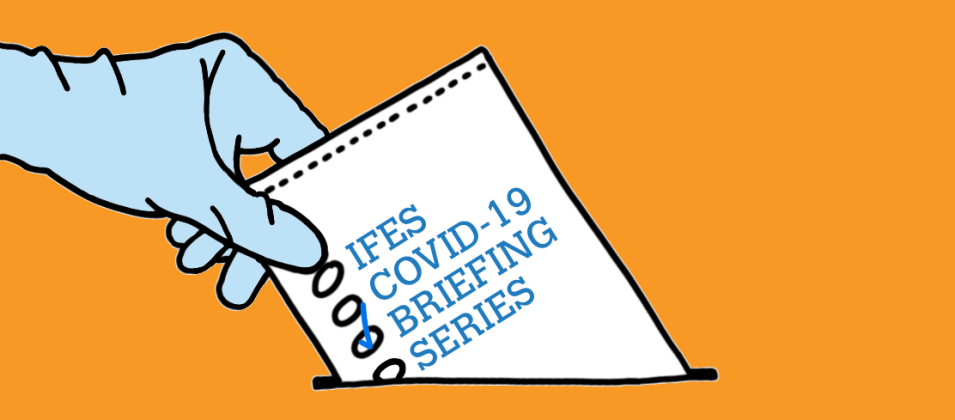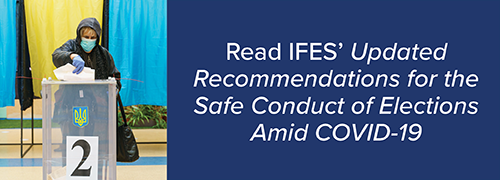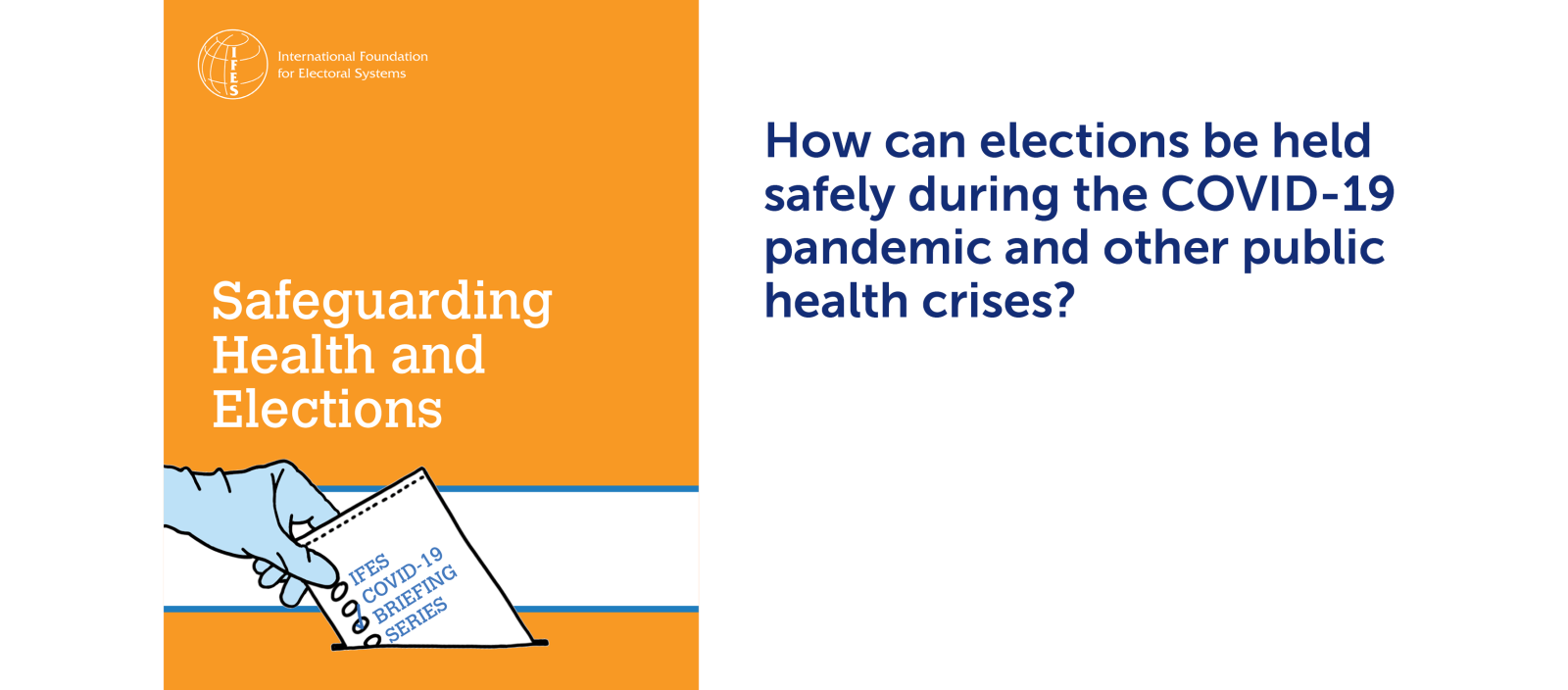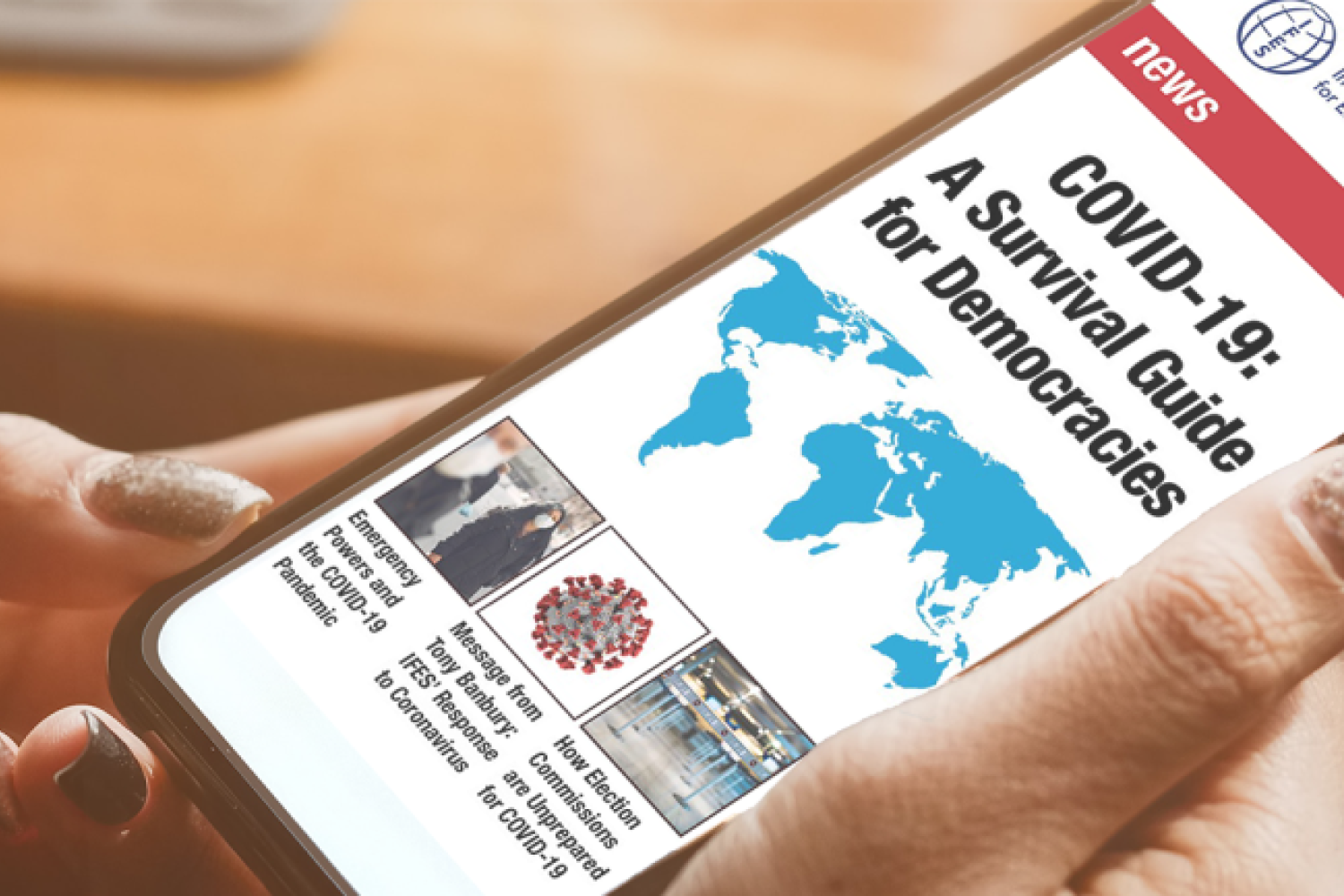
IFES COVID-19 Briefing Series: Safeguarding Health and Elections
Democracies thrive on assembly, transparency and confidence in elections and government institutions—all of which are put at risk by the COVID-19 pandemic. The global health crisis erupted during an already troubling global decline in democracy.
Already more than 50 countries have postponed or canceled elections, while others have used the crisis as a pretext to quickly consolidate power and erode individual rights.
“The COVID-19 crisis has exacted a devastating toll on human lives, economies and health systems around the world. It also is a dangerous time for democracy.”
IFES President and CEO Anthony N. Banbury
The new IFES COVID-19 Briefing Series tackles seven fundamental areas of concern for democracy and governance in the wake of the pandemic.
As democratic rights and governance are undermined, so is the ability of governments to adequately meet the needs of people suffering from the COVID-19 crisis, including already marginalized individuals who may be disproportionately harmed. Stable democracies with good governance provide the best chance for coping with viral outbreaks and the far-reaching impacts of the pandemic. This makes the role of elections and public participation even more vital during the time of COVID-19.
How can elections be held safely during the COVID-19 pandemic and other public health crises?
Safeguarding Health and Elections, the first paper in the series, answers this question for public officials, including election management bodies (EMBs), as well as for other democracy and governance practitioners, civil society organizations (CSOs), policymakers and supporters. In March 2021, IFES published Updated Recommendations for the Safe Conduct of Elections Amid COVID-19.
“Holding elections amid public health crises is possible, but considerable planning is needed to avoid exacerbating an already dire situation.”
This paper reflects the experience of both electoral and public health experts, providing critical guidance for reducing risks to voters and election officials. It addresses a host of challenges, beginning with the critical decision on whether to hold in-person elections. It also aims to reduce threats to democracy posed by cancelations and postponements that are avoidable with proper planning.
Safeguarding Health and Elections:
-
Provides a framework for public officials such as EMBs and other stakeholders to think through public health considerations for different stages of the electoral process.
-
Discusses the scope and nature of the public health challenge imposed specifically by COVID-19 during elections.
-
Provides recommendations and strategies to mitigate public health risks during specific activities required to conduct a legitimate election.
-
Identifies basic resources and supplies necessary to implement risk mitigation strategies.
-
Outlines approaches to monitor and measure the quality of implementation of the proposed strategies.
“More than 40 points in the electoral process involve the assembly of people or transfer of objects and therefore pose risks of virus transmission if no preventive measures are taken.”
IFES recommends that public officials and EMBs:
-
Communicate and coordinate with competent public health authorities and experts.
-
Prevent or mitigate person-to-person interaction.
-
Prevent or mitigate the contamination of common surfaces and objects by infected individuals.
-
Prevent or mitigate individuals’ exposure to contaminated surfaces and objects.
Download the paper for more details on how to safely conduct elections during a pandemic and other public health emergencies. Read IFES' Updated Recommendations for the Safe Conduct of Elections Amid COVID-19.
Learn more at IFES’ COVID-19 Survival Guide for Democracies.
IFES COVID-19 Briefing Series: Safeguarding Health and Elections
Authors: Fernanda Buril, Ph.D., Senior Research Officer; Staffan Darnolf, Ph.D., Senior Global Electoral Operations and Administration Advisor; and Muluken Aseresa, M.D., Senior Technical Advisor, Management Sciences for Health
Lead Editor: Erica Shein, Director, Center for Applied Research and Learning
Editors: Chad Vickery, Vice President, Global Strategy and Technical Leadership; Angela Canterbury, Director of Strategic Communications and Advocacy















